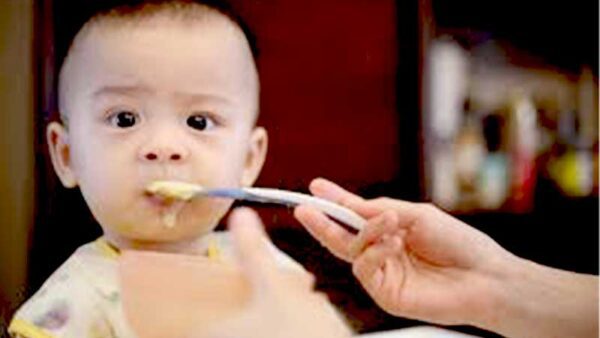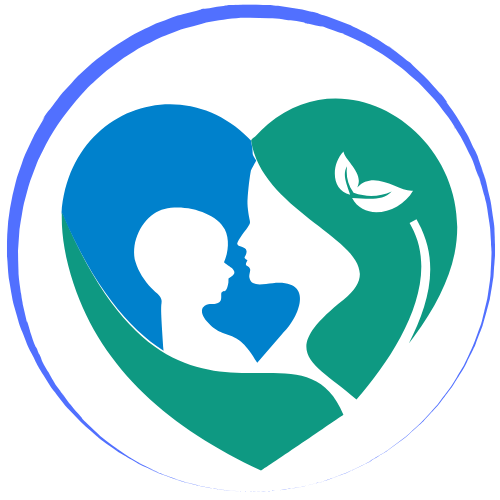Explore the science behind the question, “Does baby food cause autism?” Uncover facts, debunk health myths, and get clarity on common parenting concerns.
Parental anxiety often leads to widespread speculation about potential causes of autism. While numerous studies have investigated environmental factors, the current scientific consensus shows no direct link between baby food and autism spectrum disorders.
In this article, we’ll dive deep into the latest research, examine credible medical sources, and provide evidence-based insights to help parents understand the complex factors surrounding autism’s development and dispel unfounded fears about baby nutrition.

What is autism, and what are the symptoms?
Autism is a lifelong developmental disability that affects a person’s ability to communicate, socialize, and focus. It can be diagnosed before or after birth.
Common symptoms of autism include delays in language, delayed motor skills, and difficulty with sensory processing. Other common behaviors are perseverative speech (e.g., repeating the same word repeatedly) and restricted interests or repetitive behaviors like rocking back and forth or spinning (known as self-stimulatory behaviors). These symptoms vary widely from person to person with an autistic spectrum disorder.
The symptoms:
- Problems with social interactions: Individuals with autism may struggle to initiate or maintain conversations. They may not be able to start a conversation or maintain one. They may also work to respond appropriately to social cues, such as facial expressions and body language. Some people with autism do not like being touched and, therefore, avoid hugging, holding hands, etc.
- Communicating Problems: People with autism spectrum disorders struggle to express their thoughts and feelings. They may not understand the language that is used to communicate. They might misinterpret or not be able to follow simple instructions. They may struggle in public areas and find it challenging to engage with people.
- Repetitive behaviors and interests: Individuals with autism spectrum disorders often show repetitive behaviors or repetitive interests, such as staring at a particular point on the wall, repeating sounds or actions over and over again, or hand-flapping when excited. In some cases, these behaviors can harm the individual and their surroundings.
- Sensory issues: The senses and the brain are connected. Therefore, individuals with autism spectrum disorders may experience a wide range of sensory problems. They may be sensitive to noise, have trouble sleeping, or have sensitivity to touch or certain smells.
Why is this happening?
Scientists are not entirely sure what causes autism spectrum disorders. However, some definite factors lead to an increased risk of developing one:
- Genetic factors: A child’s chances of developing autism depend on genetics and the environment.
- Environment: living and learning environments play a role in ASD.
- Family history: Having an autistic relative can increase the likelihood of having autism, even if you don’t have it.
- Exposure to toxins: Some studies suggest increased pesticide use can cause ASD symptoms.
- Prenatal infections: prenatal viral infections have been tied to autism.
Studies on baby food and autism
Many studies have been conducted on the link between baby food and autism. Here are some of their results:
1. One study examined whether thimerosal (a mercury-based preservative) in baby foods could be linked to increased autism. It found no link between the two and concluded that there is no safe mercury level, even when it’s contained in something as innocuous as baby food.
2. Another study examined the link between organic foods and autism. It found that children fed organic baby food had a lower risk of developing autism.
3. A 2014 study examined the link between iron deficiency and autism. It found no link, but it also showed a link between iron deficiency anemia and ASD.
3. One study examined if ketchup consumption is linked to autism spectrum disorder (ASD). It found no evidence of such a link between the two.
4. Another study examined whether increased caffeine intake was linked to ASD. It found that there was no link between the two.
5. One study conducted in 2014 examined the link between diet and autism. It found that children who ate organic foods had a lower chance of developing autism. The study did not determine whether organic baby food was linked to the development of ASD.
The verdict – does baby food cause autism?

The verdict is that baby food does not cause autism. Baby food cannot cause autism because autism is a genetic disorder. The cause of the disease is in the person’s genes, so it doesn’t make sense to say that baby food could be the reason for their symptoms.
This rumor seems to stem from incidents where an infant was eating a particular brand of baby food at an early age and then developed symptoms of ASD later in life. In most of these cases, it was later shown that the baby had already developed ASD before two years, which means that the baby’s food was not the cause of autism.
In one case – the baby food and autism link – the baby already had autism before he started eating the baby food, and the only thing that changed was his diet.
Similarly, studies that examine if a particular type of diet is linked to autism do not show any evidence of a link between the two. While these studies did not investigate whether these diets affected babies directly, they do not show evidence that babies who eat particular foods have an increased risk of developing ASD.
How do you reduce your child’s risk of developing autism?
Reading labels is the best way to reduce your child’s risk of developing ASD. If you are concerned about the ingredients in baby food, try to find a brand that does not contain any of the following:
1. Artificial colors or flavors:
Colors and flavors are made for adults as well as for kids. These can include dyes and sweeteners like saccharin and aspartame.
2. Bisphenol-A (BPA)
A chemical used to make plastics, like those that line baby bottles. Although some studies have suggested a link between these chemicals and ASD, we do not know whether BPA directly causes ASD.
3. Pesticides
Often found in fruits and vegetables grown with little care or oversight. Pesticides can harm both humans and animals as they are poisonous to both. It’s best to wash your food well before consuming it.
4. Sugars
added sugars that can also be found in processed foods. All refined sugars should be avoided.
5. Soybean oil
The oil contains omega-6 fatty acids, pro-inflammatory omega-6s, not anti-inflammatory omega-3s. Avoid consuming this oil in excess to reduce inflammation in your child’s body and thus the risk of them developing ASD or other inflammatory disorders.
6. Food dyes
Synthetic dyes are most commonly used in processed foods and drinks.
Although these ingredients have been found to trigger allergic reactions in some individuals, they may also trigger symptoms of ASD. It’s best to avoid them all the same. Check your food labels, and get organic baby food when possible.
7. Healthy brain development
The formation of neurons during pregnancy is crucial for the healthy development of your child’s brain. Although wine and fish may be considered some of the best foods to eat when pregnant, these two are not them.
8. Omega-3s
Anti-inflammatory omega-3 fatty acids are essential for brain development and the health of a baby’s nervous system. Eating foods with high omega 6 to 3 is neither healthy for your child (nuts and oils, such as safflower oil, sunflower oil, etc.).
9. Products with bisphenol
A chemical is used in some baby bottles and other products to make them ‘unbreakable.’ Although BPS is not the same as BPA, health professionals recommend avoiding these products if possible.
10. Exposure to lead
It’s been known for a long time that exposure to information has damaging effects on the brain, which can lead to ASD. A study conducted at Johns Hopkins found that newborns were exposed to the dose of lead twice as much as they should have been.
Suggesting Youtube Video:
Conclusion
In conclusion, there is no evidence that baby food causes autism. While it’s essential to be aware of the ingredients in what your child consumes, it’s also important to remember that your child is genetically predisposed to developing ASD, and nothing you do can change that.
To reduce your child’s risk of developing ASD, try to expose them to various healthy foods. Some research suggests that eating organically grown produce may help reduce the risk of developing ASD.
Baby food doesn’t need to be organic, but you should always read the labels before buying food for your child.
I hope that you have found the information in this article helpful. Please share it with your friends and family on Facebook, Twitter, and other social media websites. Thank you for reading.

3 thoughts on “Does Baby Food Cause Autism? Debunk Health Myths”